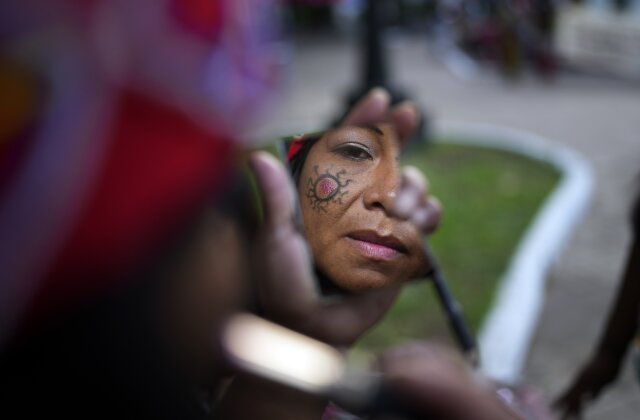Eric Nshimiye, of Ohio, is accused of repeatedly lying about his involvement in the genocide in order to come to the United States as a refugee in 1995 and then gain citizenship eight years later.
He was indicted on charges that include falsifying information, obstruction of justice and perjury. He was accused of striking men, women and children on the head with a nail-studded club and then hacking them to death with a machete, according to court documents.
The obstruction and perjury charges stem from his testimony in the 2019 trial of his one-time medical school classmate, who was convicted of hiding his involvement in at least seven killings and five rapes during the genocide, which left at least 800,000 people dead in the African country.
“For nearly 30 years, Mr. Nshimiye allegedly hid the truth about crimes he committed during the Rwandan genocide in order to seek refuge in the United States, and reap the benefits of U.S. citizenship,” Acting U.S. Attorney Joshua Levy of Massachusetts said in a statement.
In addition to lying about his involvement in murders and rapes, Nshimiye also lied about his former classmate’s involvement in the genocide, authorities said.
Photos You Should See
Nshimiye was being held in custody in Ohio following an initial court appearance last week and pending a detention hearing scheduled for Sunday. He is due to appear in federal court in Boston at a later date.
A public defender in Ohio said he couldn’t offer any comment as he was no longer handling the case and that his understanding was that a public defender in Boston had not yet been assigned.
Nshimiye was a medical student at the University of Rwanda campus in Butare in the early 1990s. Authorities accuse him of killing Tutsi men, women and children. His victims included a 14-year-old boy and a man who sewed doctor’s coats at the university hospital, authorities said.
Witnesses in Rwanda have identified the locations of the killings and drawn pictures of Nshimiye’s weapons, authorities said. Nshimiye also participated in the rapes of numerous Tutsi women during the genocide, authorities said.
Nshimiye fled Tutsi rebels and made his way to Kenya where, in 1995, he lied to U.S. immigration officials to gain refugee status in the United States, authorities said. Nshimiye has lived and worked in Ohio since 1995, according to officials.
Copyright 2024 The Associated Press. All rights reserved. This material may not be published, broadcast, rewritten or redistributed.
